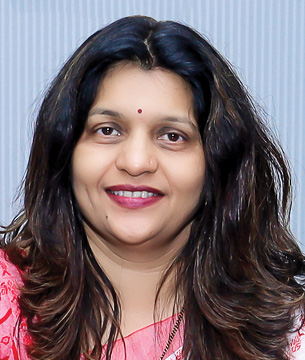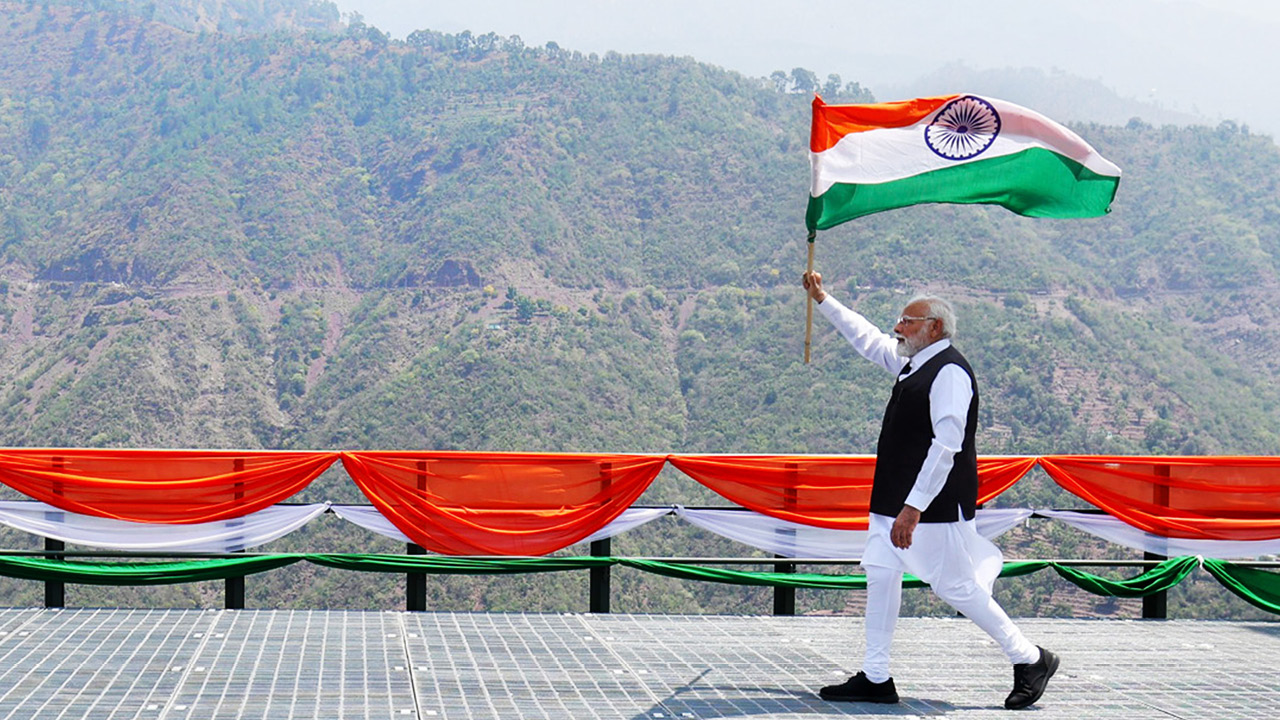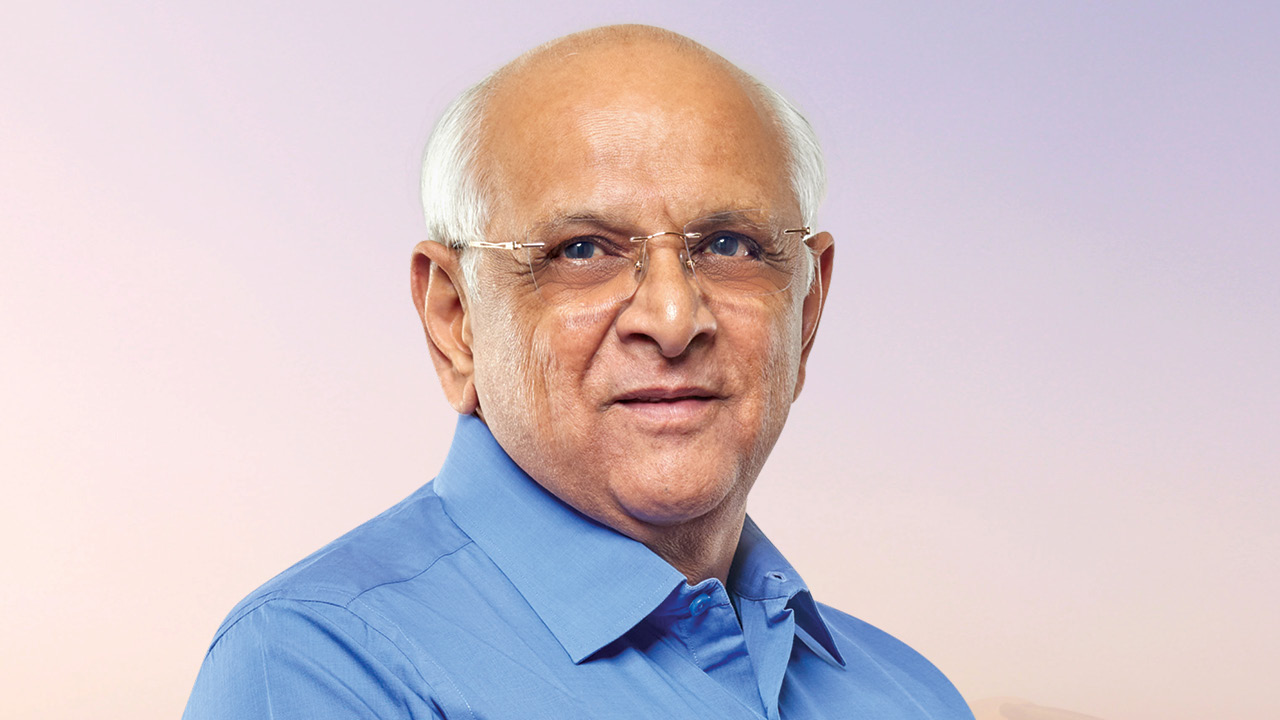The state demonstrated excellence in multiple sectors, with most impactful projects falling in the categories of Agriculture, District Governance, Health, Power & Energy, Ease-of-Doing Business and Police & Safety. These projects reflect the dedication and diligence given to improving lives of the public and serving good governance.
The consistent and sincere work being done by state officials is also indicative in its ranking in The Fiscal Health Index (FHI) for 2023 released by NITI Aayog in 2025, where it stands sixth among major Indian states, reflecting strong revenue mobilisation and debt management. In regards to SKOCH State of Governance, in the year 2024, a total of 50 well-performing projects qualified for deeper study.
A more intensive involvement was practiced in the top categories with renewed focus being given to General Administration, which improved by 6.4%, Skill Development, Rural Development and Transport all increasing by 4% and Social Justice & Security by 2%, showcasing the substantial impact that the projects left in their respective sectors.
The state’s governance aligns with its fiscal priorities, particularly in infrastructure, agriculture and business facilitation as is seen by the 6% in agriculture and 8% increase in General Administration. Investments in municipal governance and housing projects have strengthened urban development, which can be supported by the new entrants of Cooperation and Housing which are placed quite high with their impactful projects.
On the other hand, policies in agriculture have enhanced productivity and rural livelihoods leading to a 4% increase in Rural Development. Maharashtra also improved its ranking in Ease-of-Doing Business to sixth and is placed fifth in Social Justice & Security, reinforcing its commitment to inclusive governance.
State's Performance in Different Sectors in Three Years
| Sector | 2024 | 2023 | 2022 |
|---|---|---|---|
| Agricultural | 1 | 6 | 4 |
| District Administration | 1 | 4 | 6 |
| General Administration | 1 | 5 | |
| Municipal Governance | 1 | 1 | 2 |
| Skill Development | 1 | ||
| Cooperation | 1 | ||
| Housing | 1 | ||
| Health | 2 | 9 | |
| Power & Energy | 2 | 3 | 5 |
| Forest | 3 | 1 | 3 |
| Rural Development | 3 | ||
| Social Justice & Social Security | 5 | ||
| Transport | 5 | 2 | 2 |
| Ease-of-Doing Business | 6 | 8 | |
| Police & Safety | 7 | 9 | 12 |
The Balvivahmukht Dhule
The prevalence of the practice of child marriages has been quite rampant, especially in rural and peripheral areas. The state of Maharashtra has been no different with its struggle to eradicate child marriage and to tackle it there are many initiatives taken up. The Balvivahmukht Dhule and End Child Marriage in Beed have been to appreciable initiatives taken in recent times. Balvivahmukht Dhule was launched in April 2023 by the Zilla Parishad with the aim to eradicate child marriages in Dhule district while End Child Marriage Initiative in Beed District is a multi-stakeholder project and was launched under the Beti Bachao Beti Padhao scheme to combat a high rate of 43.7% child marriages.
Both these initiatives plan to incorporate education, legal enforcement and community engagement as drivers. This implementation is also coupled with healthcare, child welfare and improved child helpline services in Beed district. The key interventions in the form of data collection, awareness campaigns, school re-enrolment drivesand health support for at-risk girls.
In Dhule district, 57 child marriages were successfully prevented along with re-enrolment of 2,386 girls in schools. Although these projects faced cultural resistance and economic constraints, developing a pragmatic understanding of the negative effects of child marriages in public brought long-term behavioural change.
Communities passed resolution against child marriages as well as accepting support through institutional collaborations that can play an impactful role in eradicating child marriages.
Empowering Society Through Strategic Skilling Initiatives and Digital Education System
Education and Skill Development are important markers to evaluate the functioning of a government, failing to maintain quality in which is highly detrimental with a generational loss of skill and capabilities. The state of Maharashtra saw projects focused in the field of Education being rolled out successfully, like the initiative by Directorate of Vocational Education and Training (DVET) that focused on empowering the society by building strategic skills and the Digital Education System (DES) rolled out by Pune Smart City Development Corporation Ltd (PSCDCL). The former focused on addressing the demand for skilled manpower by modernising vocational education, aligning curriculum with industry needs and promoting soft skills training, while DES launched in march 2023 aims to modernise education in Pune’s municipal schools through technology.
The project by DVET helped develop skills through smart classrooms, career guidance camps, especially by expanding in underdeveloped areas while DES modernised education by integrating e-learning platforms, a Learning Management System (LMS) and an Education ERP to improve student engagement and teaching methods. Both these programmes overcame struggles like lack of awareness, skepticism in fruition as well as infrastructure building to achieve success with DVET enabled skill development initiative increased seat occupancy in ITI’s by 96.5%, trained 100,00 students along with achieving international placements for trainees, while DES provided a learning environment that enhances self-paced, experiential learning along with empowering teachers with digital tools.
Per Drop More Crop
The state of Maharashtra struggles with water scarcity impacting key crops like sugarcane, banana, cotton and paddy. To address this issue, Per Drop More Crop (PDMC) – Micro Irrigation scheme was implemented under the Rashtriya Krishi Vikas Yojana (RKVY). It was launched through MahaDBT Portal with and aim to enhance water-use efficiency by the means of promoting drip and sprinkler irrigation along with integrating Direct Benefit Transfer (DBT) and geotagging-based monitoring thereby ensuring transparency and efficiency in execution.
As a result of successful implementation of this scheme, the year 2023-24, witnessed over 116,312 farmers adopting micro irrigation which ultimately led to 40-45% water savings, increased yields and reduced input costs. However, low awareness, financial barriers and limited credit support hinders wider adoption, especially among SC/ST farmers. Irrespective of them, PDMC achieved a boost in employment generation, improved fertiliser efficiency and expanded adoption in drought-prone districts.
The initiative also has plans to include IoT-based irrigation automation, fertigation promotion and targeted financial incentives. Additionally, it is also been identified that addressing digital literacy and credit access will be the key in ensuring long-term success locally and nationwide. Overall, it is a transformative initiative, ensuring sustainable agricultural pratices through efficient water management and farmer empowerment.
Slum Management System
In the heart of Brihanmumbai, where hope intertwines with hardship, the Slum Rehabilitation Authority (SRA) embarked on a transformative journey with the launch of the Rent Management System (RMS). This pioneering initiative was designed to streamline rent disbursement for slum dwellers awaiting their permanent homes providing a digital solution to replace the tedious, manual processes that once led to delays, confusion and overcrowded offices for all parties involved.
The project was under the tutelage of SRA CEO and followed a meticulously planned timeline, beginning with tender selection in June 2023 and culminating in a public launch in May 2024. This platform enables seamless, real-time complaint filing and tracking thereby ensuring transparent communication between slum dwellers, developers and officials. Additionally, the automated systems now ensure timely rent disbursement, reducing office visits and expediting grievance resolution.
The implementation phase saw intensive training programmes and awareness campaigns, addressing stakeholder resistance and onboarding challenges with remarkable outcomes in the form of faster complaint resolution, reduced administrative burden and enhanced trust. Looking ahead, SRA envisions expanding RMS with direct benefit transfers and AI-driven analytics to predict and address issues proactively. This digital leap stands as a beacon of inclusive governance, offering dignity, transparency and timely support to Mumbai’s most vulnerable communities.
Mission SAKSHAM
In Chandrapur district, Mission SAKSHAM emerged as a transformative initiative to ensure Foundational Literacy and Numeracy (FLN) for Children with Special Needs (CWSN). It is aligned with NEP 2020 and the NIPUN Bharat Mission, with the pursuit of bridging educational gaps through a structured, data-driven approach.
The mission was spearheaded by the CEO of Zilla Parishad of Chandrapur, along with the district coordinator for NIPUN Bharat and the district education officer, under which a plan was developed that incorporated custom evaluation tools, trained special educators along with employing Kobo Toolbox and Tableau for real-time data collection and analysis. This innovative strategy enabled personalised learning plans for 7,289 children, tailored to their specific disabilities.
Data aggregation complexities, limited resources and lack of private school participation initially were some challenges that hindered progress. Yet, with collaborative determination, these obstacles were overcome, resulting in improved FLN outcomes and enhanced student engagement making it an innovative model for inclusive education, promotion of equality, human dignity and lifelong learning children.
Jalna’s Sericulture Revolution
Jalna district, a key sericulture hub in Maharashtra, has embarked on an ambitious journey to establish itself as the Silk Capital by integrating the entire silk production cycle—from mulberry cultivation to handloom weaving. This initiative, under the leadership of Collector & DM of Jalna, addressed critical gaps in silk processing infrastructure along with financial support and training. The major initiatives under this project included expanding mulberry cultivation under MGNREGA Sericulture scheme benefitting some 1,070 farmers with an extra 4,000 beneficiaries, indirectly. Additionally, the area under cultivation also increased from 700 acres to 1,048 acres, along with establishing private DFLs production units and new Chawki Centres. Further, the infrastructure was strengthened by setting up a new Silk Cocoon Market as well as reeling machines, silk dyeing, weaving and twisting units. The initiative created more than 5,000 rural jobs, enabling youth and women to earn sustainable incomes through silk weaving.
Although, there was limited institutional support and funding constraints, coupled with farmer scepticism- direct farmer engagement, public-private partnerships and skill development programmes allowed for growth. This initiative has reduced Maharashtra’s dependency on Karnataka for silk production, strengthened local processing and created a sustainable, high-income sericulture ecosystem benefiting farmers, weavers and entrepreneurs alike.
Vatsalya Programme
A holistic approach to Maternal and Child Health in Maharashtra, the Vatsalya Programme was launched by the Health Department, Government of Maharashtra. It is a comprehensive maternal and child health initiative designed to address pre-pregnancy, pregnancy and postnatal care. The vision is to tackle key challenges such as low birth weight, high maternal mortality and inadequate early childhood screening, ensuring better health outcomes for mothers and newborns.
The programme was rolled out in Nashik in January 2024, wherein it demonstrated improvements in maternal BMI, anaemia reduction and early identification of high-risk pregnancies. This success of the pilot plan encouraged its statewide expansion between April to June 2024 by integrating it with National Health Mission and further introducing, growth monitoring and neonatal screening.
The implementation process included leveraging healthcare workers, ASHAs and medical officers to provide preconception counselling, high-risk pregnancy management including diabetes and hypertension. Moreover, it also encompassed breastfeeding promotion and developmental screening which consists early identification of genetic as well as medical conditions. The programme wasn’t without challenges with the major existing ones being lack of community engagement, inconsistences with data tracking and interdepartmental coordination. However, the programme success can be attributed to solutions like mobile-based monitoring and culturally sensitive health campaigns, which ensured smooth functioning successfully helping 1.2 million beneficiaries. The programme is also set to expand diagnostic services, urban outreach and digital tracking.
Figure 1: Sectors with Enhanced Focus - Maharashtra

Mahalabs: Health Management Information System in Pune and Sangli
The post COVID world is a world which is as cautious as well as proactive in improving accessibility and services in healthcare. Maharashtra, one of the largest states of the country which is also considered to be the economic capital of the country, cannot afford to lag in the field of healthcare. There were many new programmes initiated in various avenues of healthcare, ranging from improving existing facilities to incorporating new ones. Both of these were at a local level. The Mahalabh initiative, Health Management Information System for Pune and Central Diagnostic Centre in Sangli are some current works in Maharashtra.
Mahalabh, which was launched under the National Health Mission Maharashtra, provides free, high-quality laboratory services across 2,600 health facilities and 140 labs, benefiting 55 million patients. It has integrated IT-enabled features like barcode tracking and real-time monitoring, to reduce patient waiting times, ensure faster diagnostics and enhance healthcare accessibility.
On the other hand, Health Management Information System in Pune city aims to modernize health diagnostics in the system by integrating 19 modules across 79 public health facilities and properties. These include outpatient departments and telemedicine services, thereby enabling faster and timely treatment and reducing the workload of healthcare professionals. Central Diagnostic Centre, Sangli with more than 70,000 citizens under it, provides essential diagnostic services at affordable rates.
Mission Bhagirath Prayas and Rainwater Harvesting in Chandrapur
Maharashtra struggles with water shortages and irregularities, which requires active participation of governments and public that target this problem. The Bhagirath Prayas Mission and Rainwater Harvesting initiative in Chandrapur are two projects that have given remarkable results in conserving water. Mission Bhagirath Prayas launched by Zilla Parishad, Nashik under the MGNREGS to ensure year-round water availability through Concrete Weir Bandharas and community participation. While Rainwater Harvesting launched in 2016 by Chandrapur Municipal Corporation (CMC) aims to combat groundwater depletion and urban flooding.
Mission Bhagirath focuses on addressing groundwater depletion, seasonal shortages and rural migration, the initiative has constructed 163 water retention structures, created 4,635 Cu liters of storage and generated 68,996 mandays of employment. On the other hand, Chandrapur Rainwater Harvesting emphasises on urban flooding and sustainable water management along with groundwater. Through grants and public awareness campaigns, 2,500 households, government buildings, schools and parks implemented harvesting systems. The initiative increased water security, reduced groundwater reliance and engaged 6,000 citizens in conservation efforts.
Both of these projects have overcome funding as well as technical challenges to ensure long-term water resilience, enhancing water security through community participation and sustainable practices along with boosting rural livelihoods.
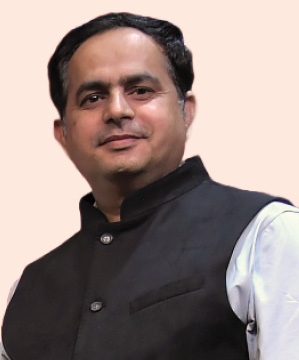
Maha-Agro Mart: Transforming Agricultural Access for Farmers in Maharashtra
An agriculture dependent country like India requires targeted policy work to help as well as support farmers, especially to continue a sustainable functioning of the Agri industry. Maha-Agro Mart platform, launched by Maharashtra Agro Industries Development Corporation (MAIDC), is directed towards empowering farmers with direct access to quality inputs, market channels and essential services. It does so by enhancing price transparency, streamlining procurement and improving decision-making through weather updates and market insights. Although there were initial struggles with digital literacy and supply chain coordination, the platform succeeding in boosting farmer productivity and income by connecting them directly with consumers thereby harnessing a digitally integrated agricultural ecosystem, which also plans for AI-driven enhancements in future.
Shasan Aplya Dari
Chief Minister Eknath Shinde, inaugurated Shasan Aplya Dari Scheme (Government at Your Doorstep) on 15 April, 2023. The scheme has ambitious aims of making government services accessible, transparent and efficient for over 4.5 crore citizens across Maharashtra. In order to achieve that, the gameplan involves, leveraging technology, district teams and volunteer networks to ensure direct service delivery, particularly benefiting marginalised communities. Although the programme struggled with logistics, an environment of public trust and citizen empowerment was fostered with the transparent disbursal of ₹25,000 crore under the scheme, serving strong good governance practices to the people.
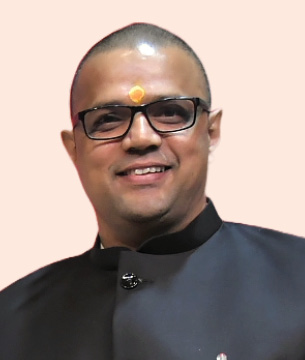
Zilla Parishad Fund Monitoring System
The Zilla Parishad Fund Monitoring System (ZPFMS), another project by Rural Development Department, enhances transparency, accountability and efficiency in rural fund management across Maharashtra. The project which was initiated on 14 October 2020 was envisioned to streamline fund disbursement, reduces delays and prevent misuse through a centralised digital platform. This system provides benefits to over 40,000 stakeholders by ensuring real-time financial tracking, practicing data-driven governance along with empowering the locals. There are plans to improve further by including GIS-based project mapping, AI-driven fraud detection and mobile integration with aims to make it a remarkable public fund management system.
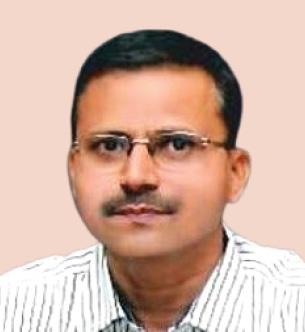
Revival of Solapur District Central Co-operative Bank
The Solapur District Central Co-operative Bank Ltd (SDCCB) faced severe financial distress due to mismanagement, low recovery rates and outdated banking practices requiring immediate intervention. In 2018, the Maharashtra government appointed an administrator, initiating a comprehensive revival strategy.
The key interventions of this strategy included a Business Development Plan (BDP), along with employee training and performance-based incentives. These were coupled with introduction of modern banking services such as mobile vans, micro-ATMs and QR code-based transactions, expanding financial inclusion. The revival also included disbursement of loans through Joint Liability Group (JLG) microfinance and an Interest-Free Crop Loan Scheme thereby directly benefiting rural farmers.
This revival initiative continued to face struggle during implementation like slow legal loan recovery and technological constraints, but strong leadership, employee engagement and digital banking allowed a significantly positive turnaround. It is visible in the bank’s performance by 2024, with SDCCB’s gross profit surging to ₹117 crore and business volume doubling up to ₹8,900 crore.
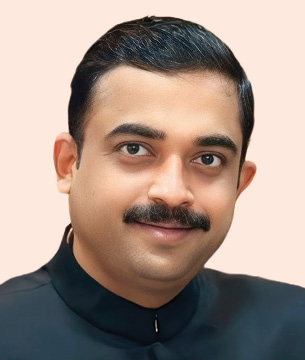
Umang Autism Centre
Umang Autism Centre was set up in Latur on 30 October 2021. It provides neurological and therapeutic services to children with disabilities at affordable costs and has already benefited over 2,145 children. It offers speech, behavioural, psychological and occupational therapies alongside essential medical services like diagnostic tests, artificial limbs as well as free medicines for the children.
The implementation process included free medical camps, health insurance initiatives and government collaborations, which ensured that care reaches rural and under-served communities. The successful implementation of its plans provided a transformative and holistic medical service for specially abled children.
